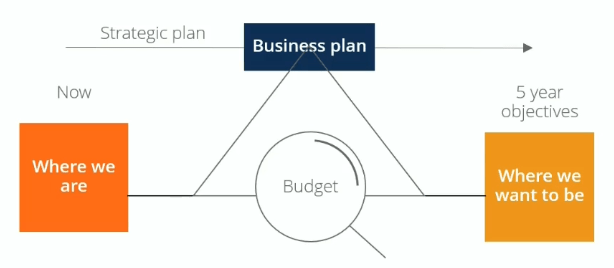
That is going to be some kind of hefty raise that I am giving myself. You see, by treating my monthly budget as a business, I provide myself with a means of increasing my disposable income and savings. I do not need a boss to give me a raise; through diligence and resourcefulness, I can give myself a raise, again and again, over and over, year over year. The long-term, cumulative effects of doing this can be quite staggering, to say the least, and one’s overall net worth will increase substantially over the years, by putting this “business practice” in place. I am an extremely compulsive and diligent budget person. Regardless of how large or small a household expenditure is, I record it in a tracking spreadsheet. I think my wife thought that she had married some kind of compulsive lunatic, when I implemented this system in my household. But, as time moved on, she recognized and understood the value of the budgeting system that I put into place in our household. Moreover, I have taught my 3 children the value of money and budgeting, and have attempted to interject these principles into their lives as much as possible.
In this time of economic hardship being frugal with your money can save you big time without the need to reduce your standard of living. Knowing where to save can help you through the hard times and increase your financial status once the economy does a turnaround. Budgeting has become a lost art. The spendthrift ways of yesterday has come down to a financial strain on family resources and left most people scrambling to make ends meet and find new ways to keep the standard of living. It takes an economic crisis to force everyone to rethink their spending habits and their priorities on what it is they really need to survive through the chaos. Being frugal does not mean going without necessities. It does mean putting to use every dollar more effectively. Large ticket items such as cars, furniture and appliances are a large drain on the pocketbook. You don’t need to keep up with the trend in cars by buying new every three years.
Budgeting is an essential part of your family’s financial planning. Creating and following a budget can help you and your family to live within your means, save money for the future and avoid building debt. While statistics show the average it is helpful to have an idea of household budgeting percentages. In New Zealand statistics are collated by Statistics New Zealand and in the USA it is the Bureau of Labor Statistics. In both America and New Zealand the highest percentage of spending is on housing. While the average American family spends almost one-third of their monthly income on housing in NZ the housing and household utilities group made up a quarter of total household spending. There are differences in how this is calculated as the US the figure includes repairs and furnishings. The next highest percentage in America is 18% for transportation while New Zealand shows 13%. Interestingly the figures for food are reversed as in the US this is 13% and includes dining out. In NZ 18% is spent on food but another 10% can be added for culture and recreation.
Even before you decide to go into a show or two you should have a hard look at the costs and expected returns. This is why you create a trade show budget. Whether you admit it or not, everything has a cost, and trade shows are not an exception. Remember that your objective is to make sales, or at least generate opportunities to make sales. So you have to view your costs in that light. Everything should be done with an eye on its potential return. As I’ve said, the normal starting point for your campaign the trade show BUDGET. If you work from a budget you have an outside chance of keeping your costs under control. Of course there is a certain amount of hocus pocus involved in budgeting for things like trade show marketing especially if you’ve never serioulsy done it before and have no track record to go on. Still, you should give it your best shot. This is not rocket science, and any research or analysis you do will be better than just “winging it” Try using a “brainstorming” process like what follows.
Proper budgeting does not only imply accounting for your spending whether it is actual or future, it also implies comparing prices, and analyzing which is the best payment method to save as much as possible. So, in order to budget any particular purchase, there are some steps that you need to take without taking any shortcuts. The main steps that you need to take are: Put money aside preferably on a savings account, selecting a financing method if you can’t come up with the whole amount and shopping around for the lowest price possible but taking into account the selected payment method and financing approach. The practice of saving money is a very healthy one. You should have a savings account where you put at least ten percent of your earnings aside. A twenty percent of your income is far better and any amount above that is simply perfect. Saving money prior to purchases can let you negotiate better and search for prices as you can always tempt retailers to pay in cash and request a discount for doing so.
Learn about every possible grant and loan you may have available to you as well as what better paying part-time jobs you might apply for at home and in your college town. Of course, it is vital to learn about all the tuition, living and student costs for your chosen colleges to plan for your mainline college life expenditures as well. Finally, with the help of a parent or trusted adult its time to research and set up all the bank, debit card and yes, even credit card accounts you will need to go on to school. It’s important to realize the debt plays an important role in financing and managing college, because much, if not most of the money being spent will be borrowed. That means the student must realize that they’ll be paying all that borrowed money back and squandering money is not an option. Armed with this information you will be able to plan your upcoming life transition and make a valid budget for your college career.
